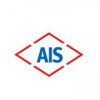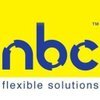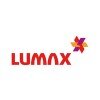
i
Spark
Minda
Filter interviews by
Spark Minda Interview Questions and Answers
96 Interview questions
Building relationships involves trust, communication, and mutual respect to foster strong connections with others.
Establish trust by being reliable and consistent in your actions.
Communicate openly and actively listen to understand others' perspectives.
Show empathy and support during challenging times to strengthen bonds.
Engage in shared activities or interests to create common ground.
Provide constructive feedback...
The RFQ process involves gathering requirements, evaluating suppliers, and selecting the best proposal for procurement.
Define the requirements clearly: Specify the products or services needed, including quantities and specifications.
Identify potential suppliers: Research and compile a list of qualified vendors who can meet the requirements.
Prepare the RFQ document: Include all necessary details such as timelines, ...
Production planning is the process of organizing and optimizing manufacturing processes to meet demand efficiently.
Involves forecasting demand to determine production levels.
Includes scheduling resources like machinery and labor to maximize efficiency.
Utilizes inventory management to ensure raw materials are available when needed.
Example: A car manufacturer plans production based on projected sales and supply chai...
Line balancing optimizes production efficiency by evenly distributing tasks across workstations.
Identify the total work content required for the production process.
Determine the cycle time based on production rate and available working time.
Group tasks into workstations to minimize idle time and maximize throughput.
Use techniques like the precedence diagram to visualize task dependencies.
Example: In an assembly li...
Absolutely, I thrive on challenges and am committed to putting in the hard work necessary for success in this role.
I have consistently worked overtime during peak recruitment seasons to meet hiring goals.
In my previous role, I implemented a new HR software system, which required extensive training and late nights to ensure a smooth transition.
I believe in leading by example; I often volunteer for challenging proje...
DFM (Design for Manufacturing) is the process of designing a product to optimize its manufacturability.
Consider manufacturing processes early in the design phase
Minimize the number of parts and components
Design for ease of assembly and disassembly
Use standard components and materials whenever possible
Collaborate closely with manufacturing engineers
I was responsible for driving sales growth at my last company by implementing strategic marketing campaigns and building strong relationships with clients.
Implemented targeted marketing campaigns to increase sales
Built strong relationships with clients to drive repeat business
Analyzed sales data to identify trends and opportunities for growth
An exemplary case of an effective supply chain is the partnership between Toyota and its suppliers.
Close collaboration between Toyota and its suppliers to ensure timely delivery of high-quality parts
Just-in-time inventory system to minimize waste and reduce costs
Continuous improvement through Kaizen practices to enhance efficiency and quality
Strong relationships built on trust and mutual benefit
Our tool room structure is organized and efficient, with designated areas for different tools and equipment.
We have separate sections for storing cutting tools, measuring instruments, and machinery.
Each tool is labeled and stored in its designated place for easy access and inventory management.
We follow a strict tool maintenance schedule to ensure all tools are in optimal condition for use.
Our tool room is equippe...
Inventory management involves overseeing the flow of goods from manufacturers to warehouses to retailers, ensuring optimal levels are maintained.
Inventory management involves tracking and controlling the flow of goods from manufacturers to warehouses to retailers.
It includes forecasting demand, setting reorder points, and managing stock levels to prevent stockouts or overstocking.
Efficient inventory management can...
Spark Minda Interview Experiences
136 interviews found
(5 Questions)
- Q1. Last company technology and technical review related questions
- Q2. Last company working profile
- Ans.
I worked as a Senior Sales Executive at a multinational technology company.
Managed a team of sales representatives to achieve monthly targets
Developed and implemented sales strategies to increase revenue
Collaborated with marketing team to create effective promotional campaigns
Provided training and support to new sales staff
Regularly analyzed sales data to identify trends and opportunities for growth
- Q3. How much man handle
- Q4. How much machine u hav handle
- Ans.
I have experience handling various machines in my previous roles, including industrial equipment and office machinery.
Managed operation of CNC machines in a manufacturing plant
Maintained and repaired office printers and copiers
Trained on operating heavy machinery such as forklifts and cranes
- Q5. How much sell of last company
(2 Questions)
- Q1. Why do you want to leave the job
- Ans.
Seeking new challenges and growth opportunities
Looking for new challenges to expand my skill set
Interested in opportunities for career advancement
Seeking a more dynamic work environment
- Q2. Tell us about your tool room structure
- Ans.
Our tool room structure is organized and efficient, with designated areas for different tools and equipment.
We have separate sections for storing cutting tools, measuring instruments, and machinery.
Each tool is labeled and stored in its designated place for easy access and inventory management.
We follow a strict tool maintenance schedule to ensure all tools are in optimal condition for use.
Our tool room is equipped wit...
आपने जॉब के बारे में बताइए
(2 Questions)
- Q1. No skilled question
- Q2. Bad company, worst politics, bad salary, no growth, no kra, no value employee, low grade behaviour and many more.
Interview Preparation Tips
I appeared for an interview in Dec 2024.
(5 Questions)
- Q1. What is the inventory management?
- Ans.
Inventory management involves overseeing the flow of goods from manufacturers to warehouses to retailers, ensuring optimal levels are maintained.
Inventory management involves tracking and controlling the flow of goods from manufacturers to warehouses to retailers.
It includes forecasting demand, setting reorder points, and managing stock levels to prevent stockouts or overstocking.
Efficient inventory management can help...
- Q2. What is FIFO & LIFO.
- Ans.
FIFO and LIFO are inventory management methods. FIFO stands for First In, First Out, while LIFO stands for Last In, First Out.
FIFO method assumes that the oldest inventory items are sold first.
LIFO method assumes that the newest inventory items are sold first.
FIFO is commonly used in industries with perishable goods, like food and beverages.
LIFO is often used in industries where inventory costs are rising, like electro...
- Q3. Invoice processing
- Q4. SAP ERP knowledge
- Q5. Dispatch & Store knowledge like GRN, MRN,MIRO etc
I applied via Naukri.com and was interviewed in Aug 2024. There was 1 interview round.
(5 Questions)
- Q1. Tell me about yourself
- Ans.
Experienced Senior Executive with a proven track record in leading teams and driving business growth.
Over 10 years of experience in senior leadership roles
Successfully implemented strategic initiatives resulting in increased revenue by 30%
Strong communication and negotiation skills
Led cross-functional teams to achieve company goals
MBA in Business Administration from a top university
- Q2. Why do you want left your previous job
- Ans.
Seeking new challenges and opportunities for growth in a more dynamic environment.
Desire for career advancement
Seeking new challenges
Opportunities for growth
Change in work environment
- Q3. What is your strength
- Ans.
My strength lies in my ability to effectively lead teams, make strategic decisions, and drive results.
Strong leadership skills
Ability to make strategic decisions
Drive results and achieve goals
Effective communication and collaboration
Adaptability and problem-solving skills
- Q4. What is your weakness
- Ans.
My weakness is that I tend to take on too many tasks at once, leading to occasional overwhelm.
I have a tendency to overcommit myself and struggle with prioritizing tasks
I am working on improving my time management skills to better handle my workload
I have learned to delegate tasks when necessary to avoid burnout
- Q5. What is expectation from your job role
- Ans.
To lead and inspire a team towards achieving organizational goals through strategic planning and effective decision-making.
Setting clear goals and expectations for the team
Providing guidance and support to team members
Making informed decisions based on data and analysis
Driving innovation and continuous improvement
Building strong relationships with stakeholders
Interview Preparation Tips
I appeared for an interview in May 2025, where I was asked the following questions.
- Q1. What motivate you
- Ans.
I am motivated by achieving goals, helping others, and continuous personal growth in my career.
Setting and achieving sales targets drives me; for example, exceeding my quarterly sales goal by 20%.
I find motivation in building relationships with clients, ensuring their needs are met, which leads to repeat business.
Continuous learning inspires me; I regularly attend workshops to enhance my sales techniques and industry k...
- Q2. How do you handle change
- Ans.
I embrace change as an opportunity for growth, adapting my strategies to meet new challenges and enhance performance.
Stay positive: I view change as a chance to learn and improve. For example, when our sales strategy shifted, I took the initiative to learn new techniques.
Be proactive: I research and prepare for upcoming changes. When our company adopted new software, I enrolled in training sessions to stay ahead.
Commun...
- Q3. What are your long term career goal s
- Ans.
My long-term career goals include advancing to a leadership role in sales and contributing to strategic growth initiatives.
Aim to become a Sales Manager within the next 5 years, leading a team to achieve sales targets.
Develop expertise in market analysis to identify new business opportunities, similar to how I successfully launched a product in my previous role.
Pursue continuous professional development through certifi...
I appeared for an interview in May 2025, where I was asked the following questions.
- Q1. Induction of your self
- Ans.
A motivated individual with a strong academic background and diverse experience, eager to contribute to team success and drive results.
Educational Background: Graduated with a degree in Business Administration, focusing on management principles.
Internship Experience: Completed an internship at XYZ Corp, where I assisted in project management and learned about team dynamics.
Skills: Proficient in data analysis and projec...
- Q2. Experience about your internships
- Ans.
I completed internships in diverse sectors, gaining hands-on experience in project management, teamwork, and problem-solving skills.
Interned at XYZ Corp, where I assisted in managing a marketing campaign that increased brand awareness by 30%.
Worked with a team to streamline operations at ABC Ltd, resulting in a 15% reduction in costs.
Participated in a research project during my internship at DEF Institute, contributing...
(3 Questions)
- Q1. Explain end to end design process
- Ans.
The end to end design process involves planning, designing, implementing, and testing a product or system from start to finish.
Understand requirements and constraints
Create initial design concepts
Develop detailed design plans
Implement design through prototyping or coding
Test and validate design against requirements
Iterate on design based on feedback
Finalize design for production
- Q2. Explain GD&T and why it js required
- Ans.
GD&T stands for Geometric Dimensioning and Tolerancing. It is required to specify the allowable variations in form, size, and orientation of parts in engineering drawings.
GD&T is a symbolic language used on engineering drawings to communicate design intent and ensure parts are manufactured correctly.
It allows for more detailed and precise specifications compared to traditional dimensioning methods.
GD&T helps to reduce ...
- Q3. Asked me draw engineering view for a given object
- Ans.
An engineering view includes orthographic projections, isometric views, and detailed drawings to represent an object accurately.
Orthographic projections show different views: front, top, and side.
Isometric views provide a 3D representation of the object.
Detailed drawings include dimensions, materials, and tolerances.
Examples: A mechanical part may require sectional views to show internal features.
Interview Preparation Tips
Skills evaluated in this interview
I appeared for an interview in Feb 2025, where I was asked the following questions.
- Q1. Why should I be considered for this job?
- Q2. Whenever you join for this job?
- Q3. Can you take hard work for this job?
- Ans.
Absolutely, I thrive on challenges and am committed to putting in the hard work necessary for success in this role.
I have consistently worked overtime during peak recruitment seasons to meet hiring goals.
In my previous role, I implemented a new HR software system, which required extensive training and late nights to ensure a smooth transition.
I believe in leading by example; I often volunteer for challenging projects t...
Interview Preparation Tips
I applied via Job Fair and was interviewed in Nov 2024. There was 1 interview round.
Product target achieve and maintain line 5s
Interview Preparation Tips
Top trending discussions






Spark Minda Interview FAQs
The duration of Spark Minda interview process can vary, but typically it takes about less than 2 weeks to complete.
Tell us how to improve this page.
Spark Minda Interviews By Designations
- Spark Minda Assistant Manager Interview Questions
- Spark Minda Production Engineer Interview Questions
- Spark Minda Quality Engineer Interview Questions
- Spark Minda Senior Engineer Interview Questions
- Spark Minda Sales Executive Interview Questions
- Spark Minda Engineer Interview Questions
- Spark Minda Deputy Manager Interview Questions
- Spark Minda Management Trainee Interview Questions
- Show more
Interview Questions for Popular Designations
Overall Interview Experience Rating
based on 135 interview experiences
Difficulty level
Duration
Interview Questions from Similar Companies
Spark Minda Reviews and Ratings
based on 1.8k reviews
Rating in categories
|
Assistant Manager
483
salaries
| ₹7.7 L/yr - ₹13 L/yr |
|
Senior Engineer
268
salaries
| ₹4 L/yr - ₹10 L/yr |
|
Deputy Manager
247
salaries
| ₹9.9 L/yr - ₹17.9 L/yr |
|
Quality Engineer
236
salaries
| ₹1.7 L/yr - ₹5.5 L/yr |
|
Engineer
199
salaries
| ₹2.4 L/yr - ₹7 L/yr |

JBM Group

Subros
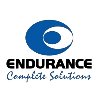
Endurance Technologies
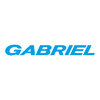
Gabriel India Limited
- Home >
- Interviews >
- Spark Minda Interview Questions



